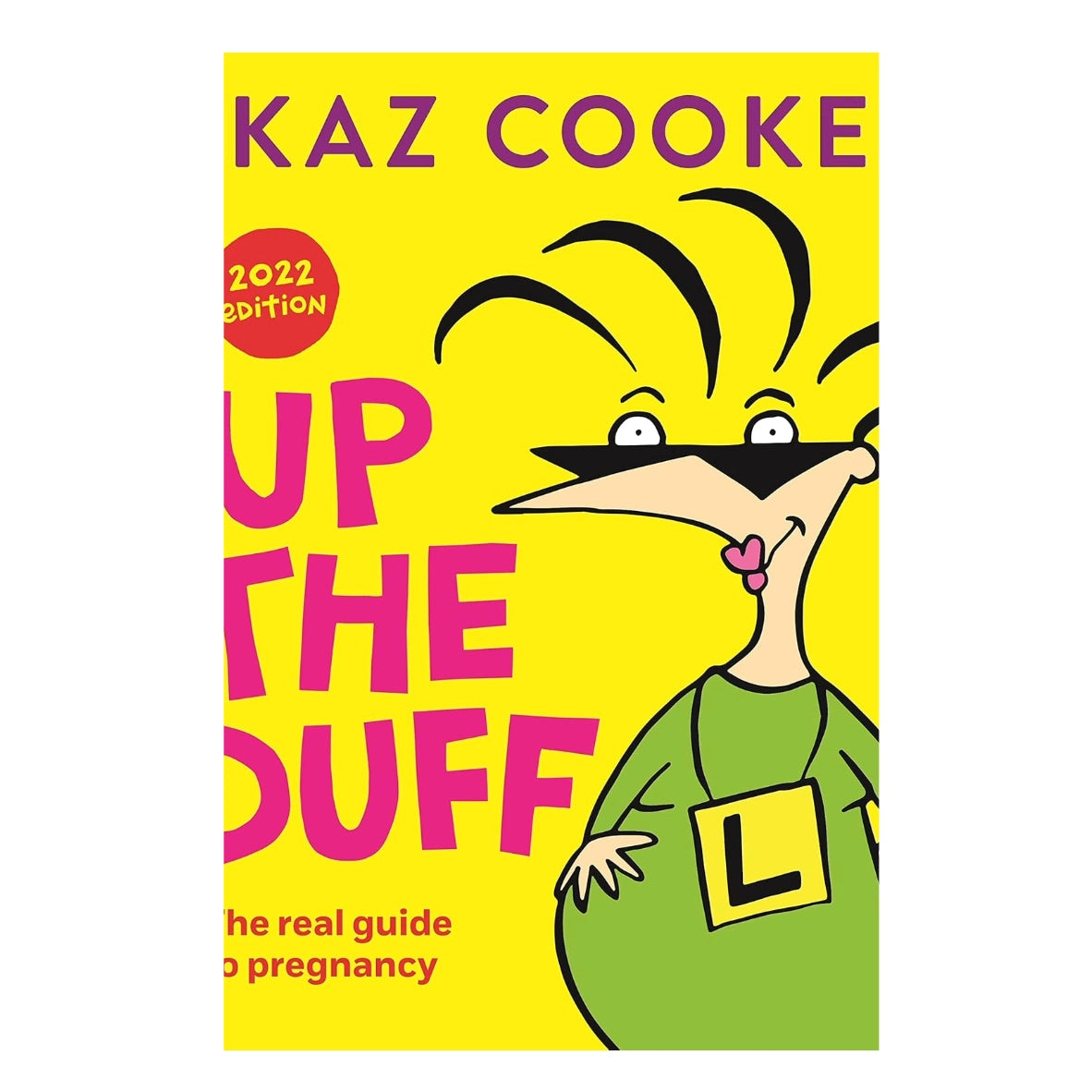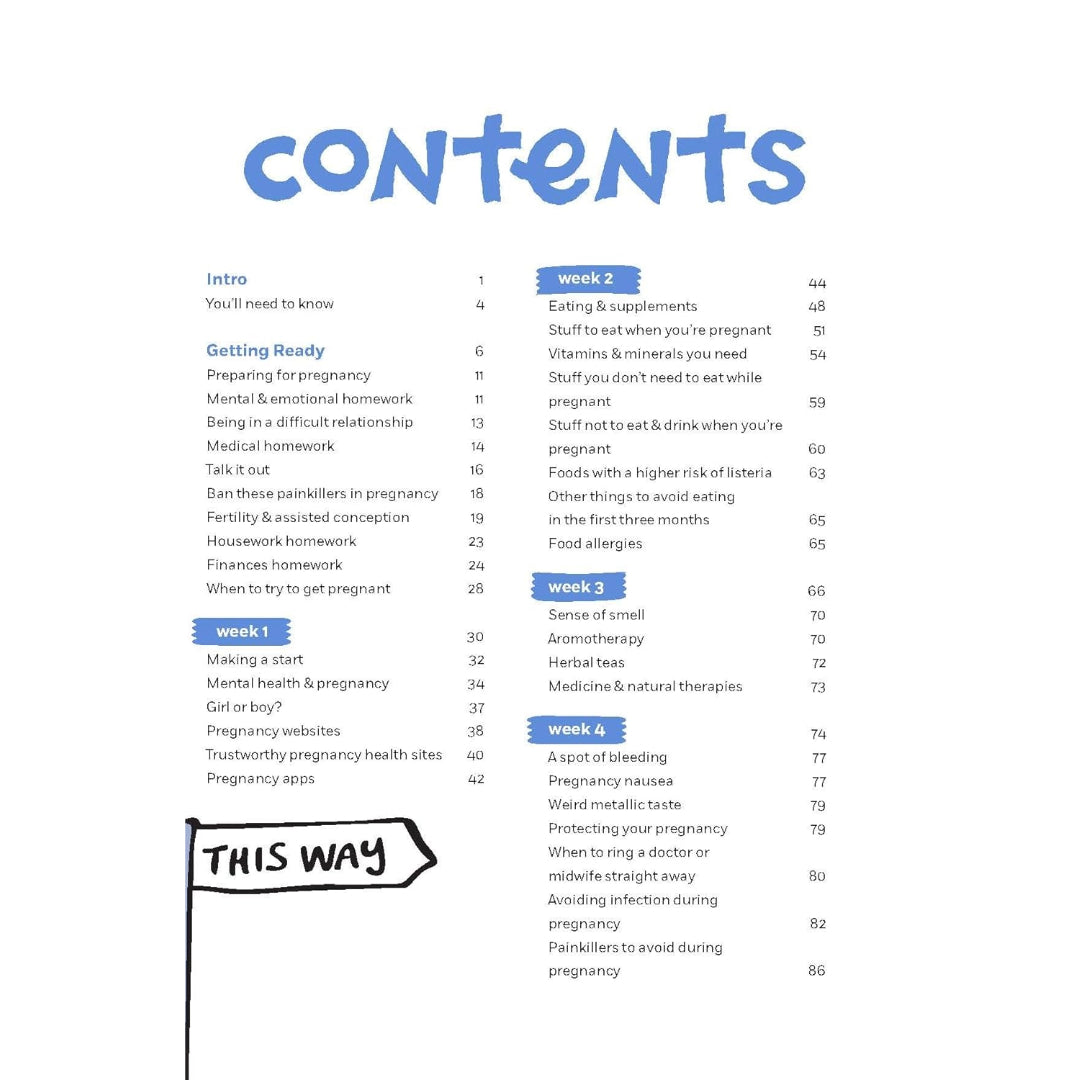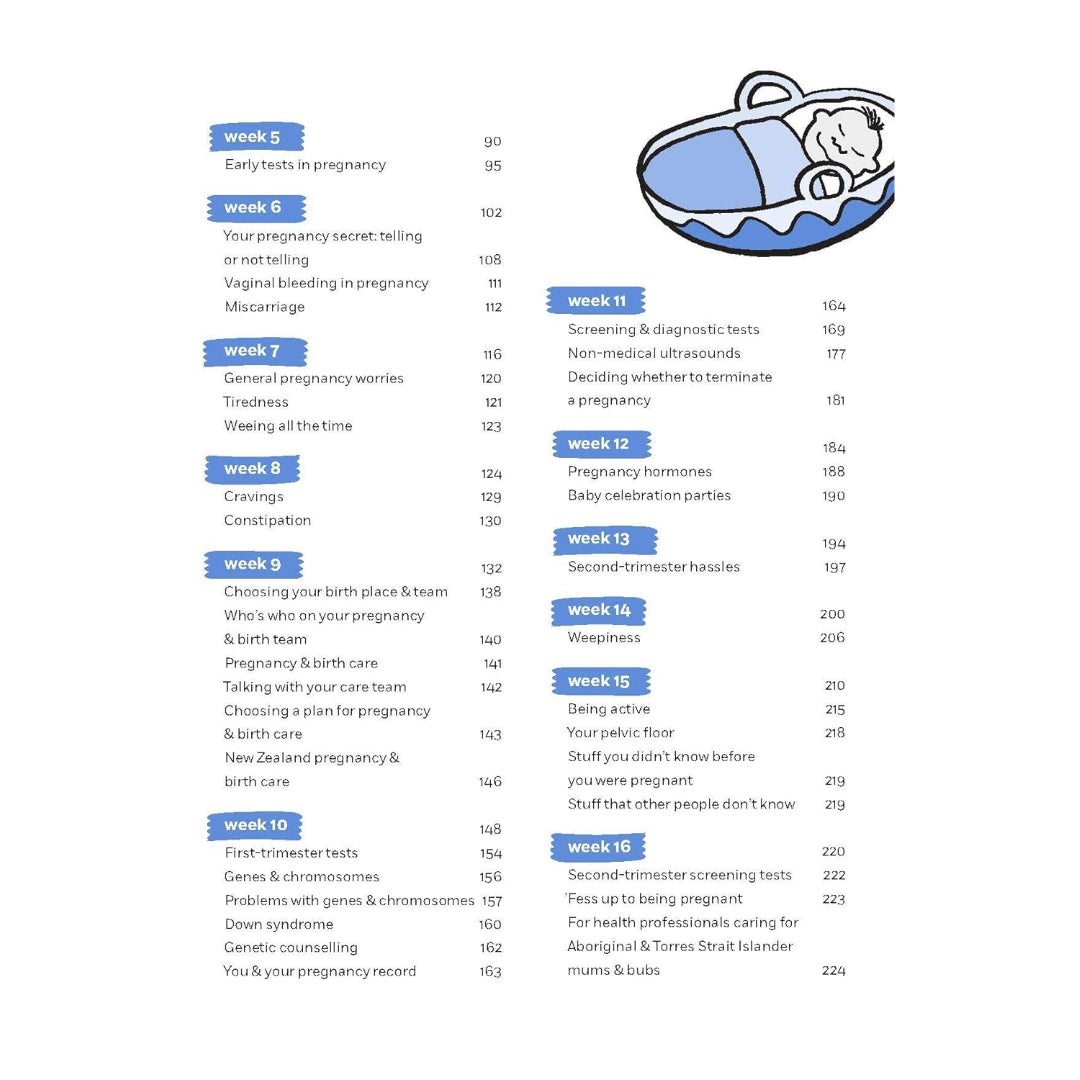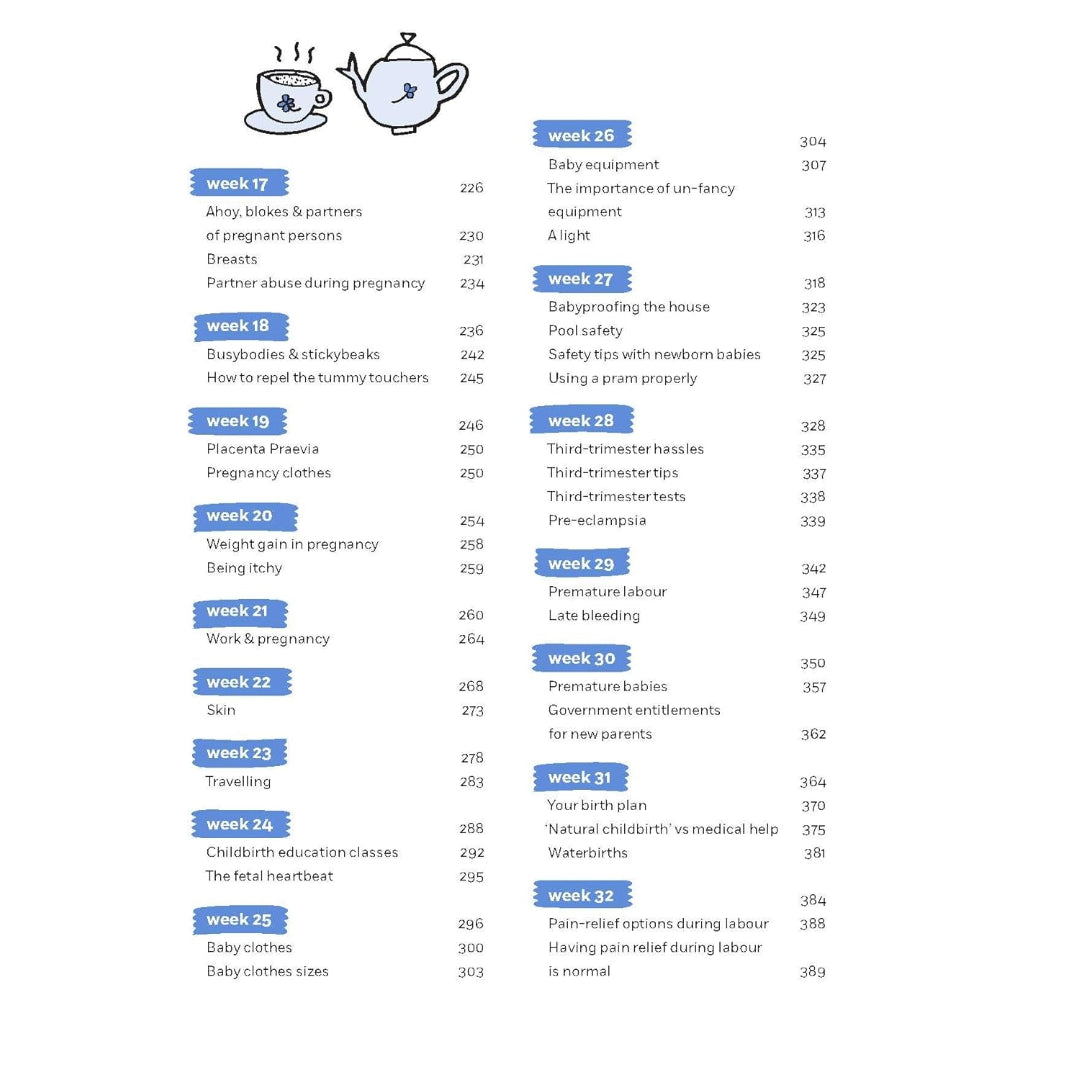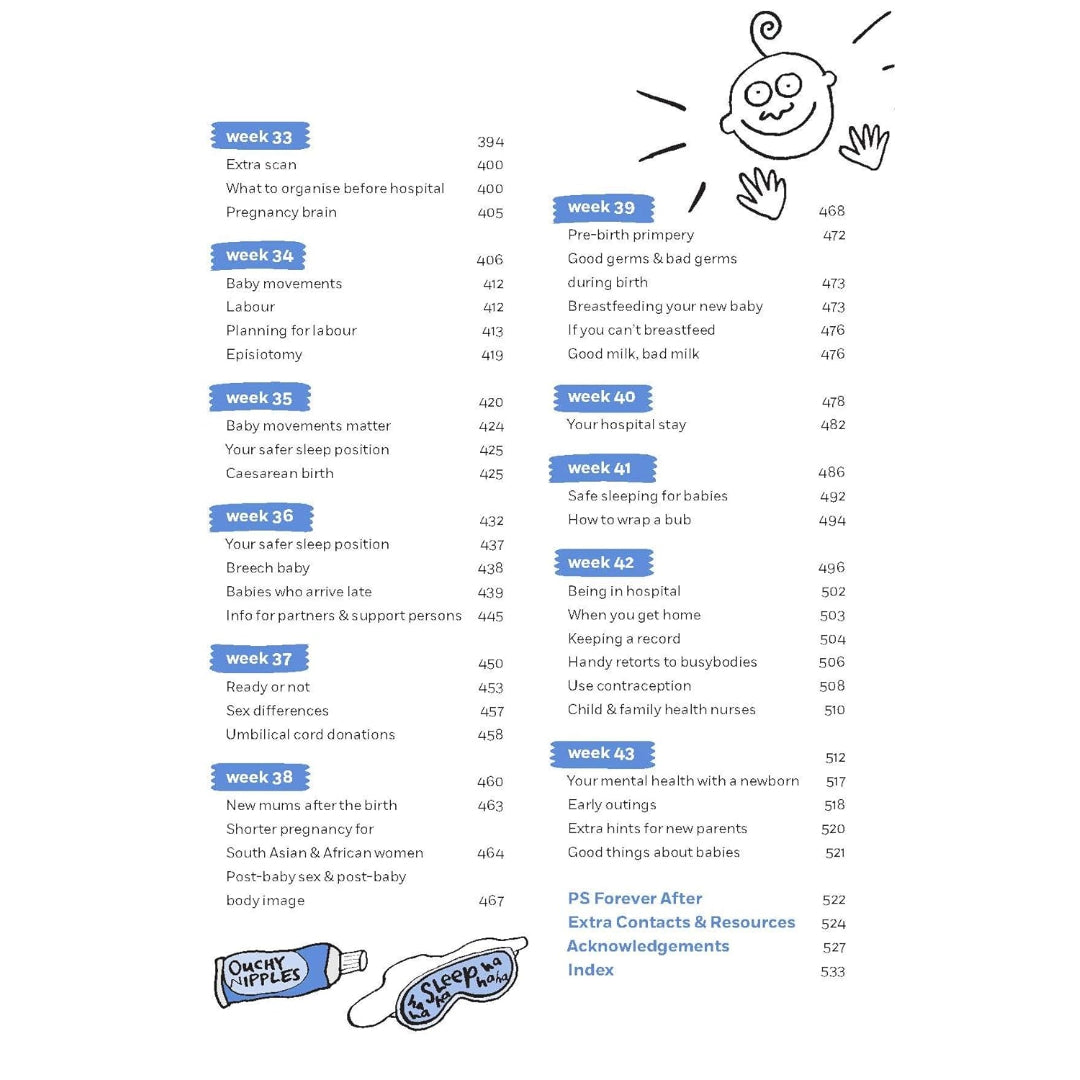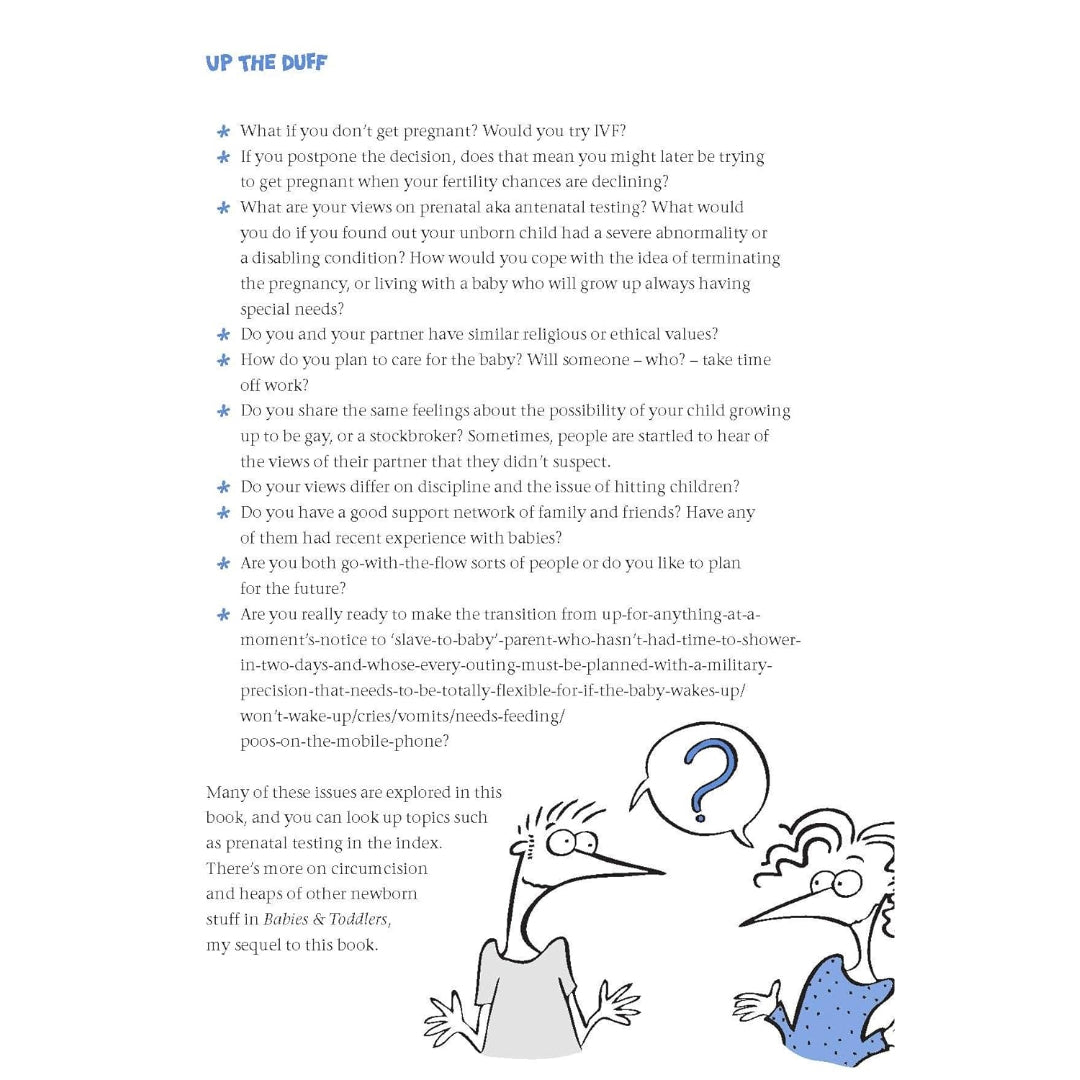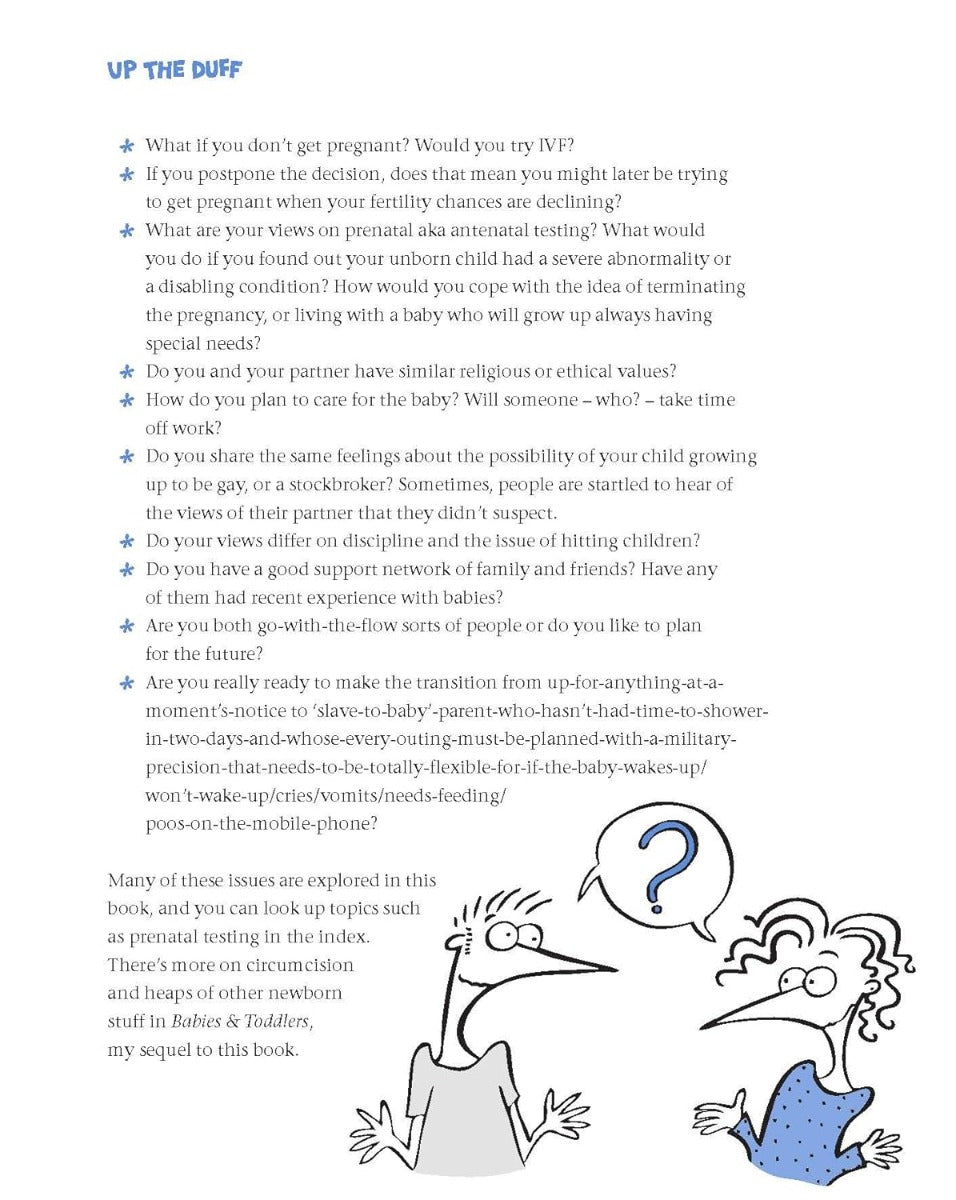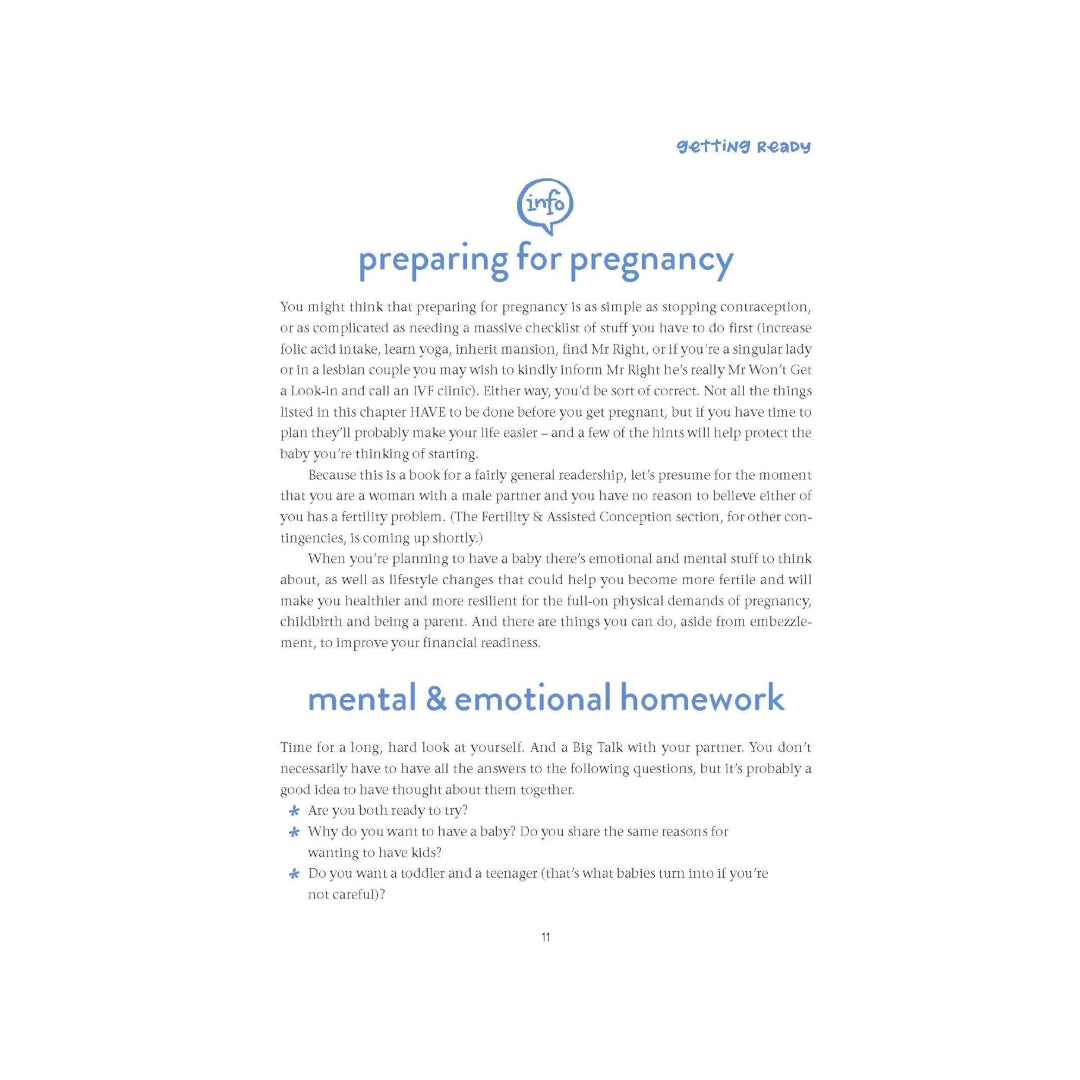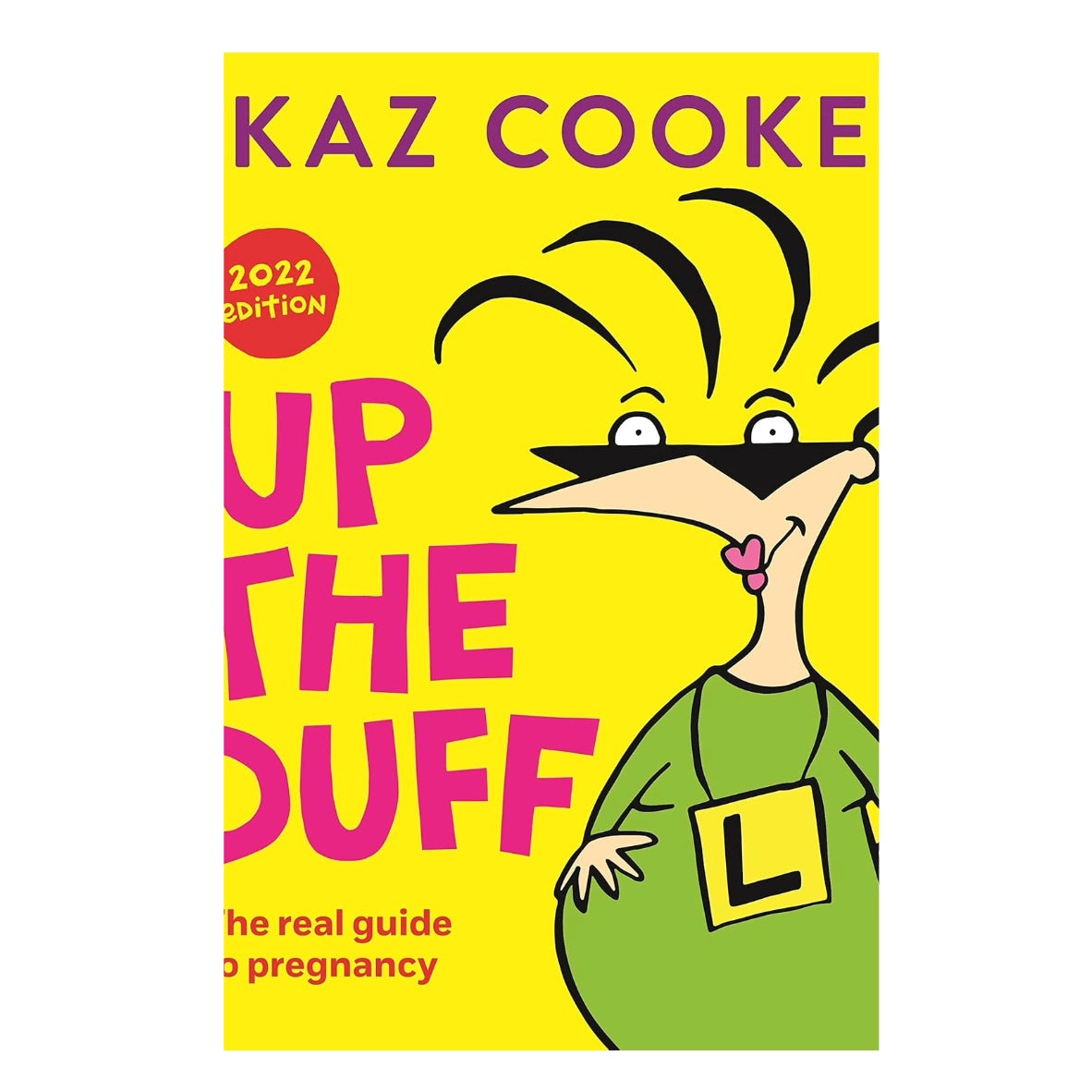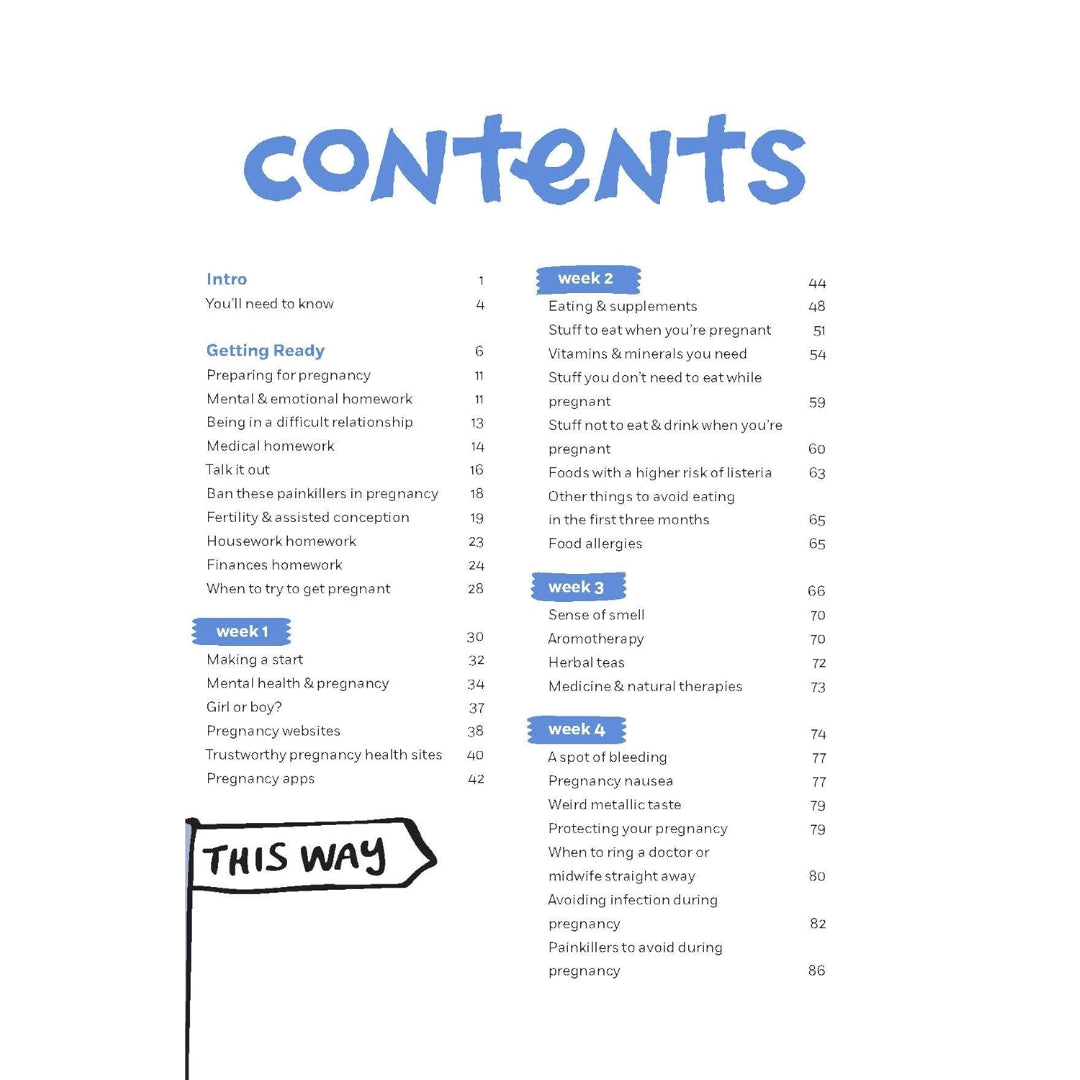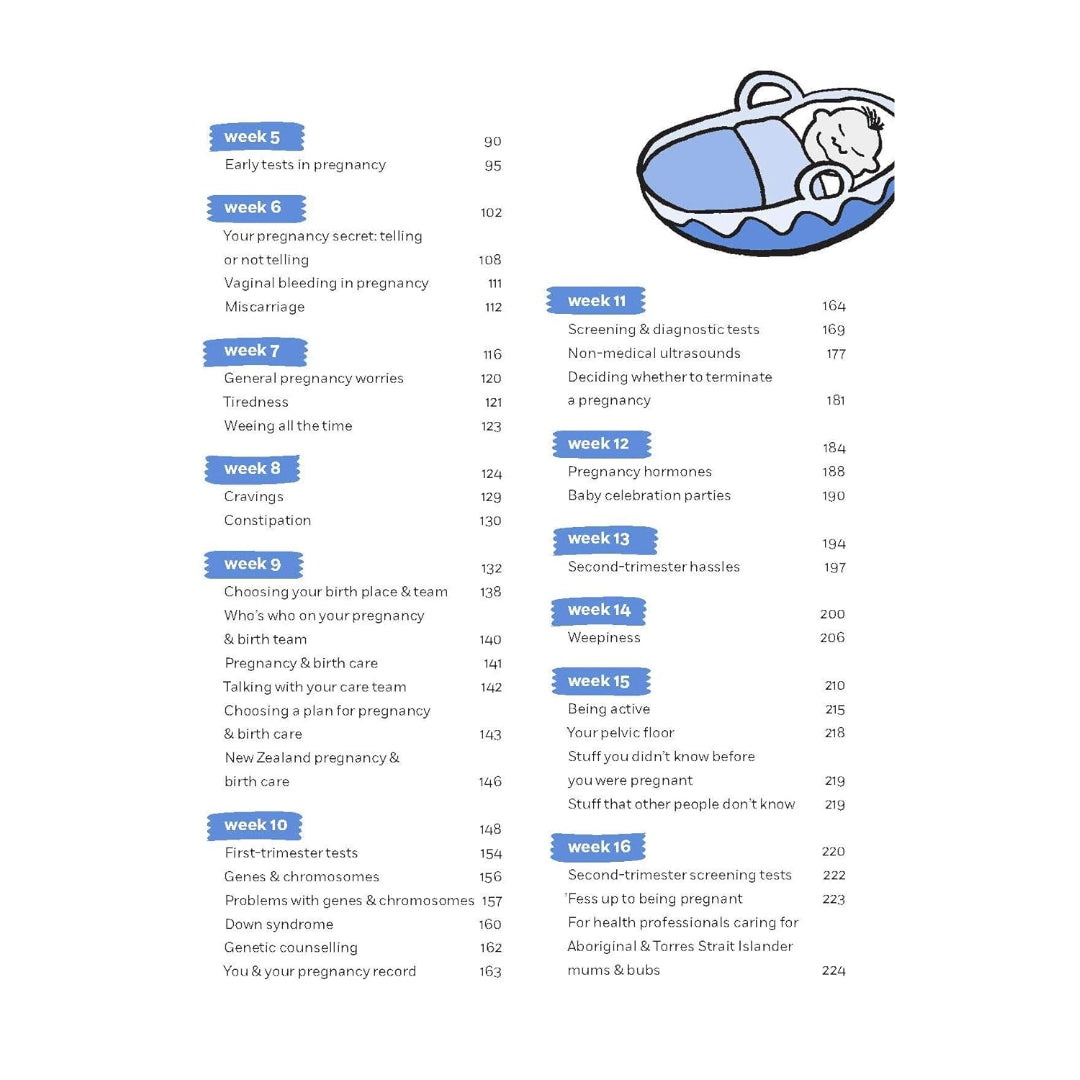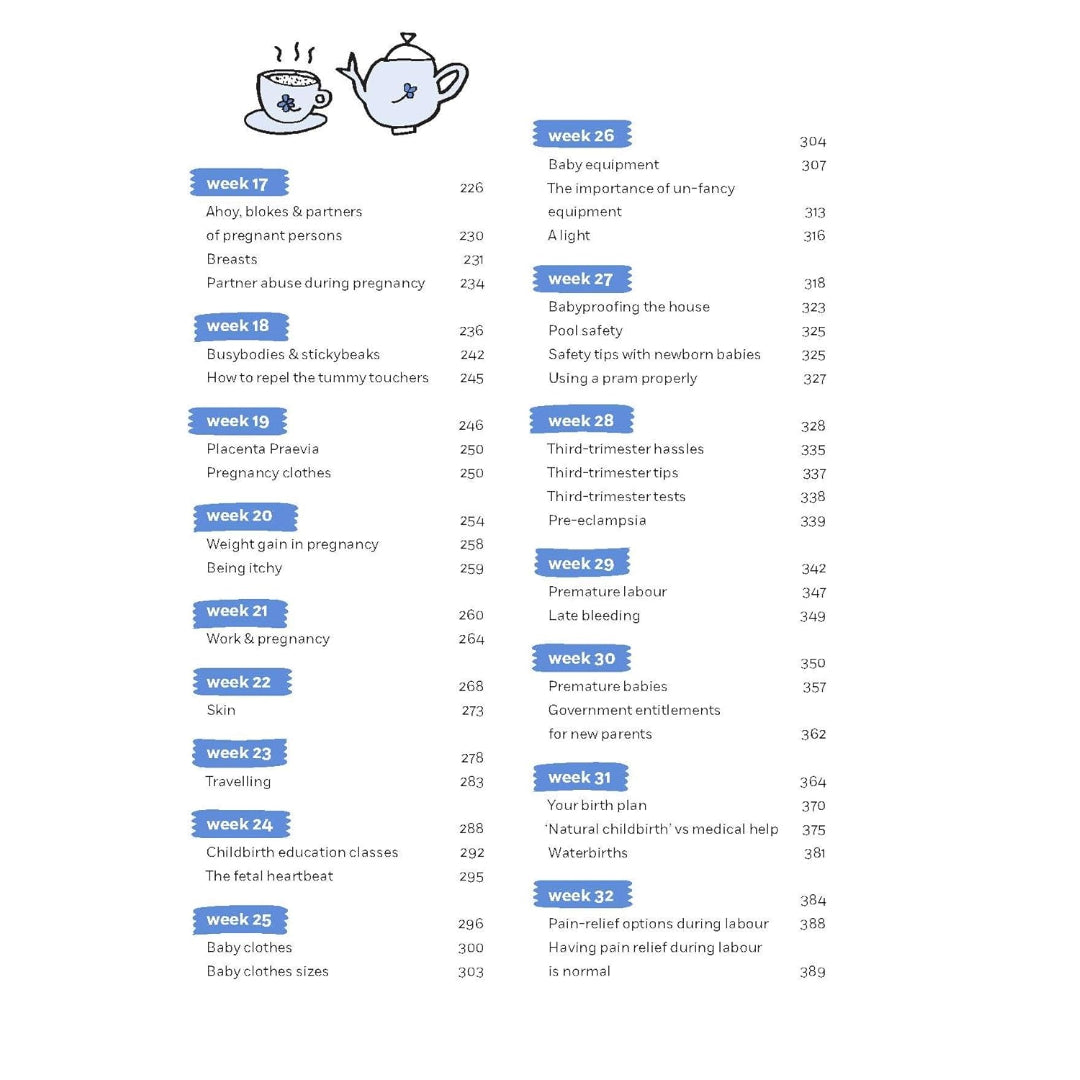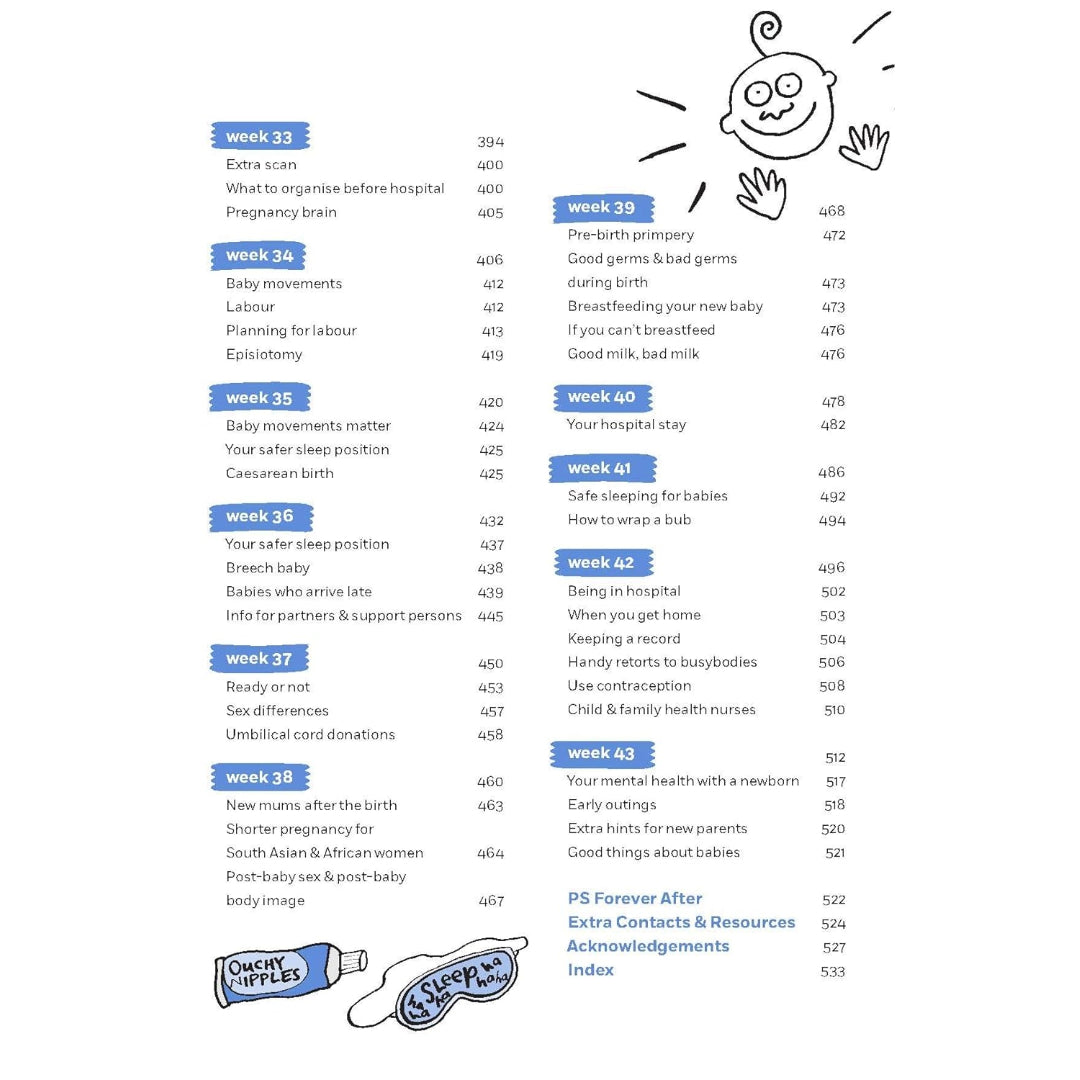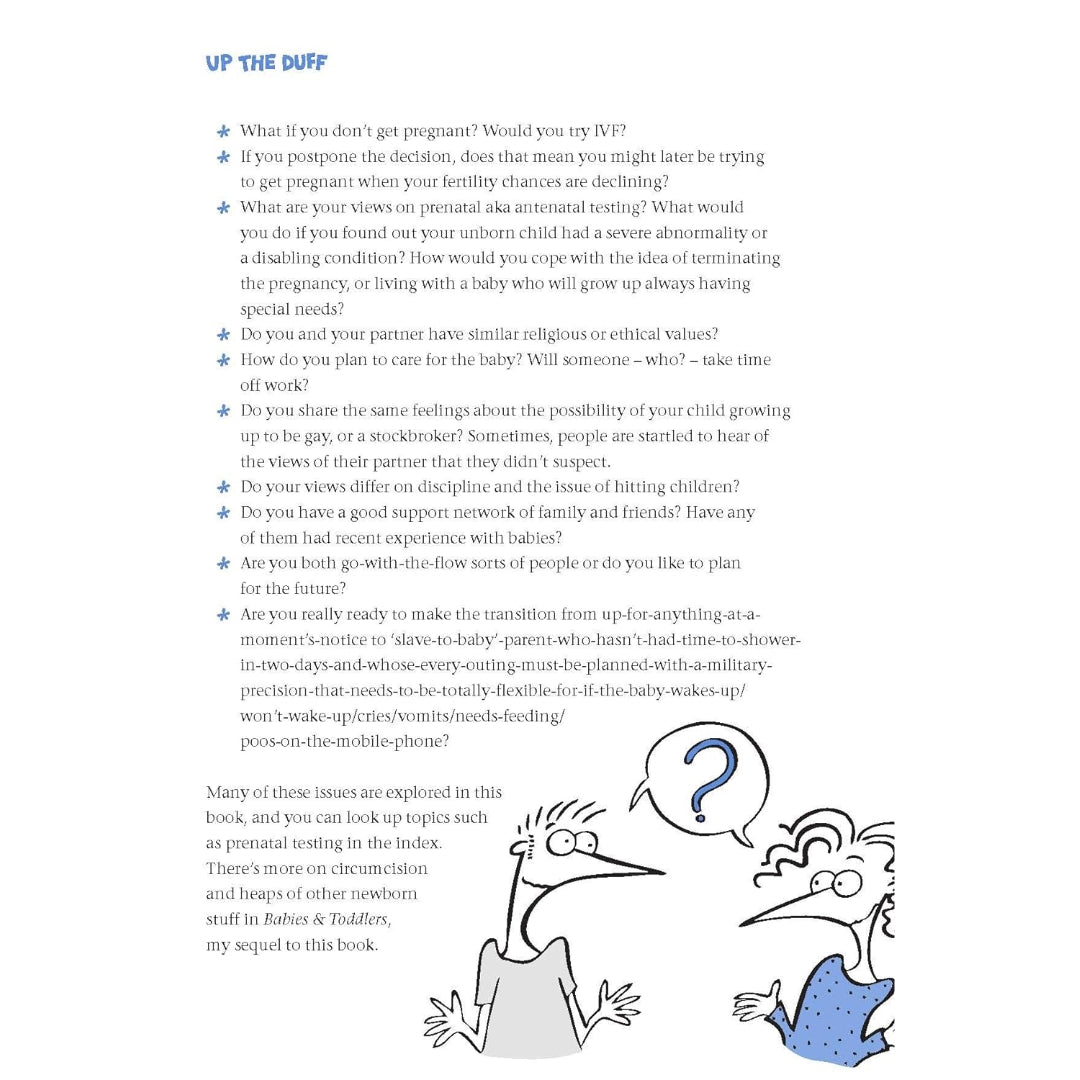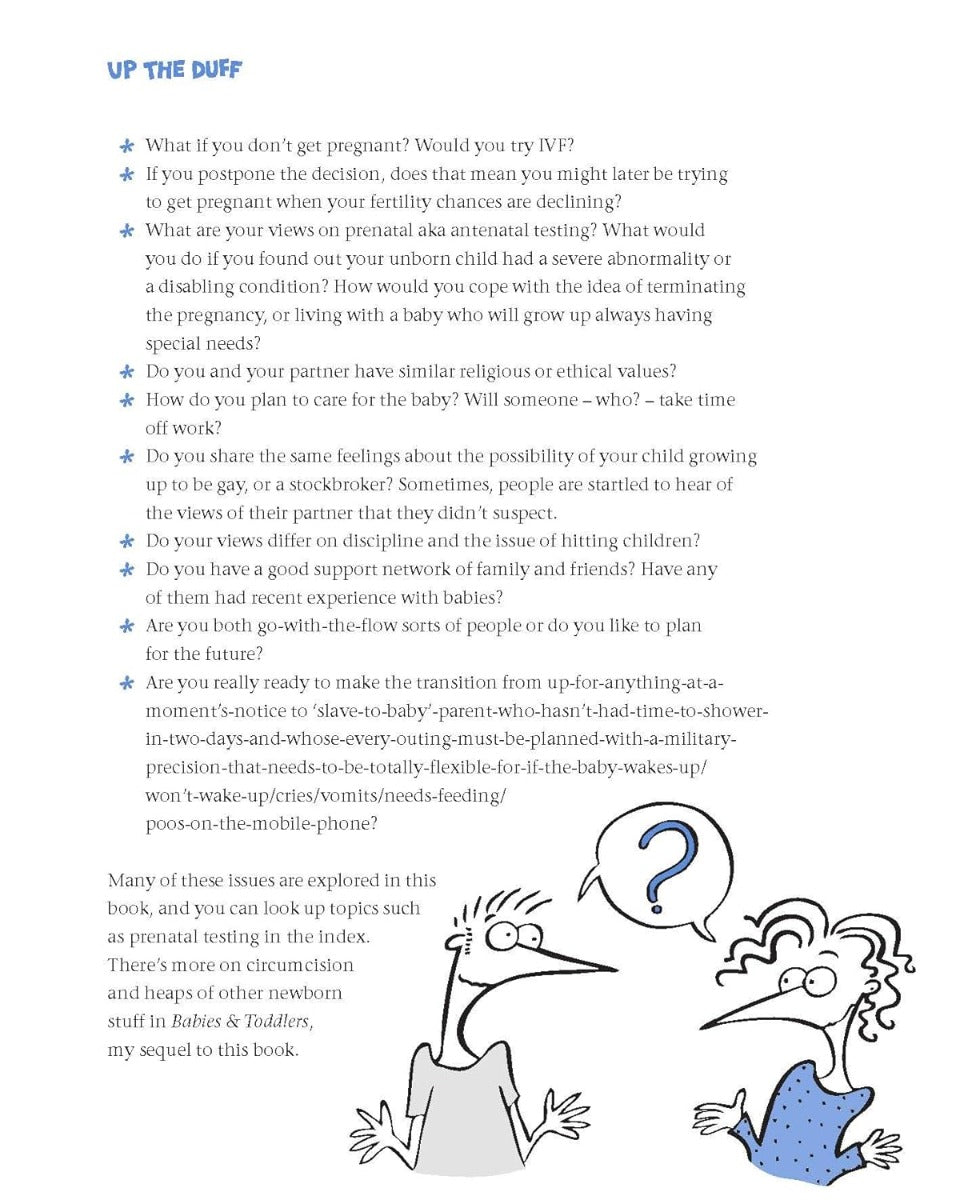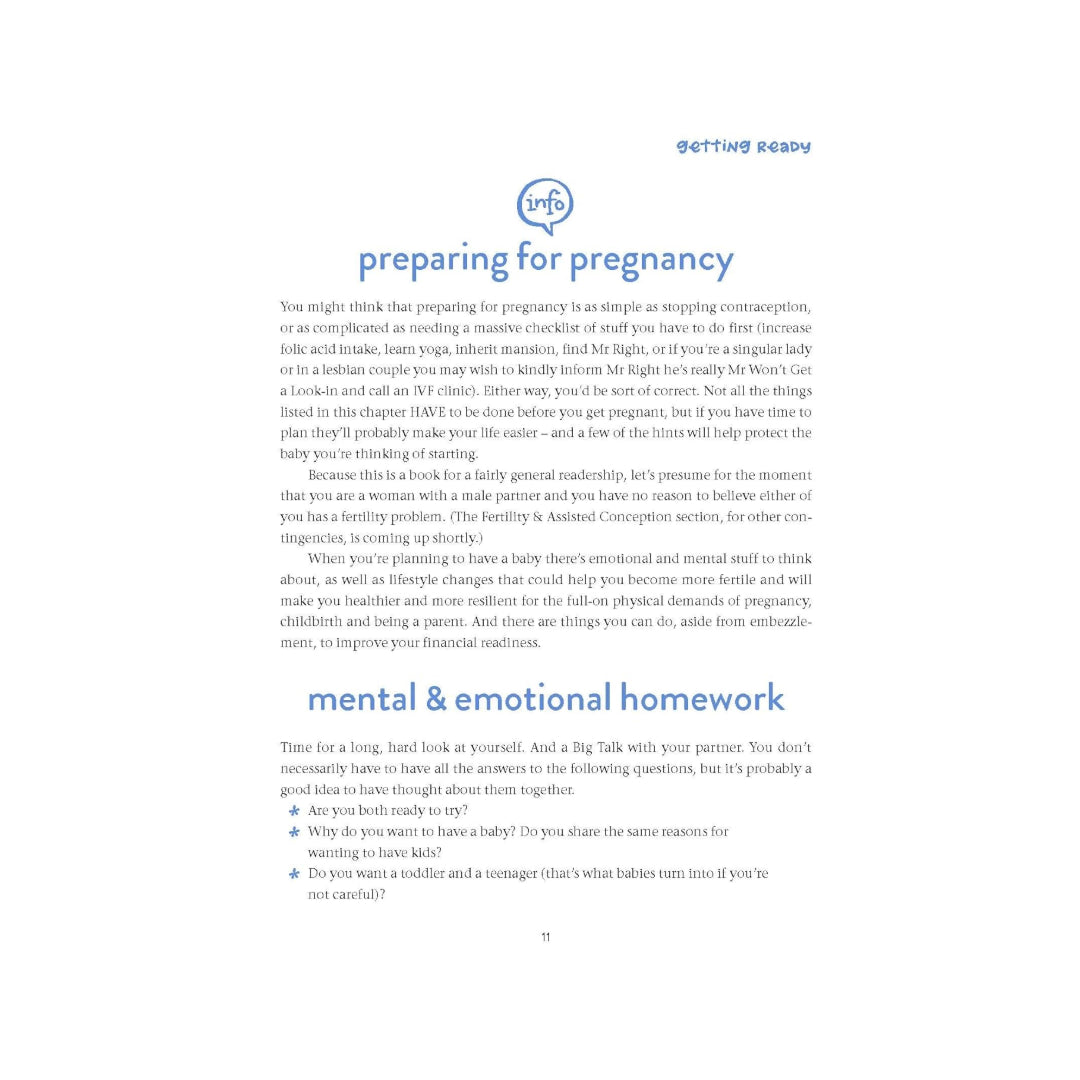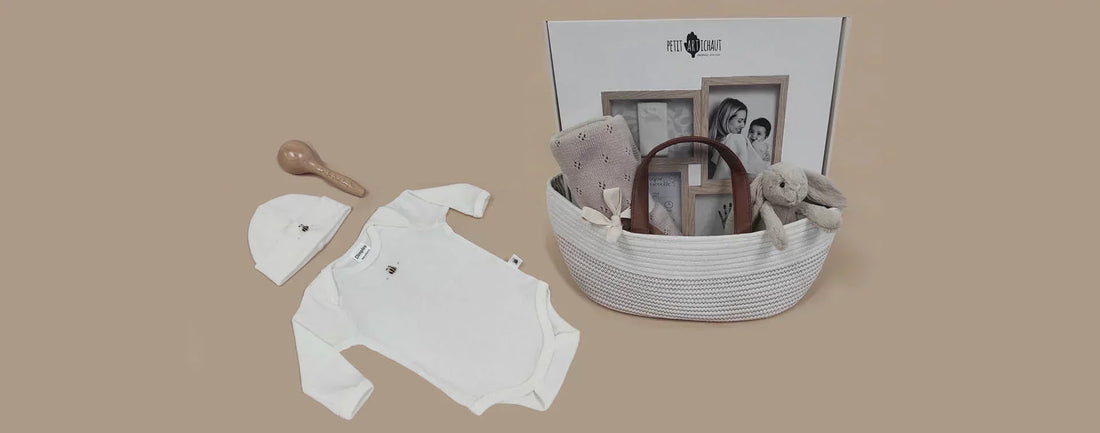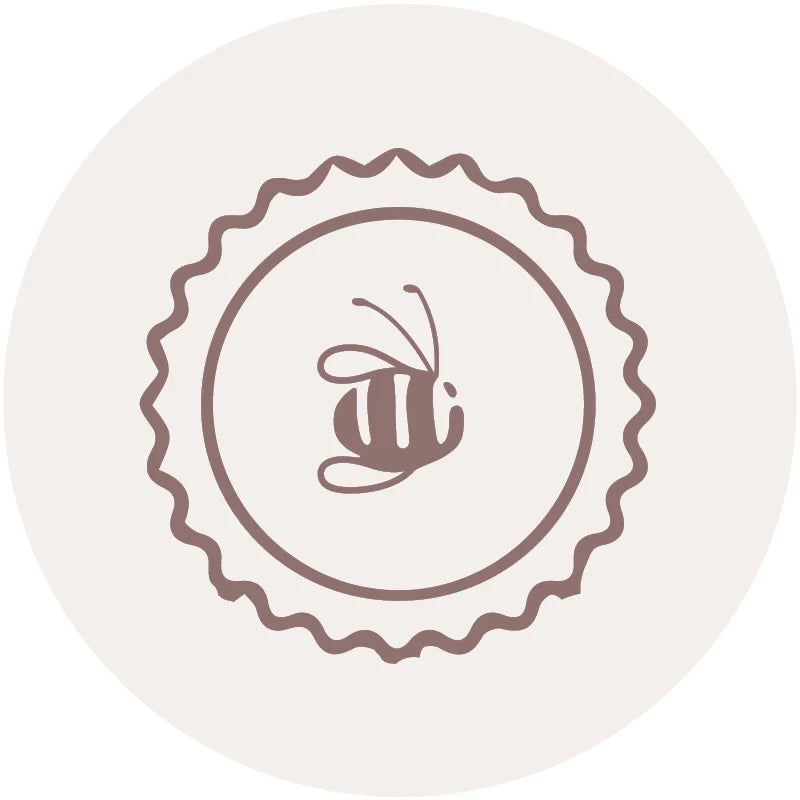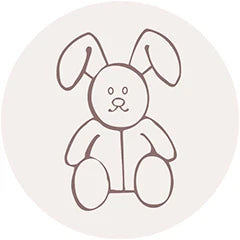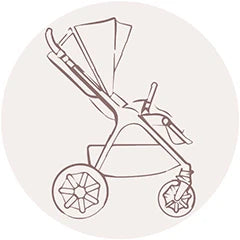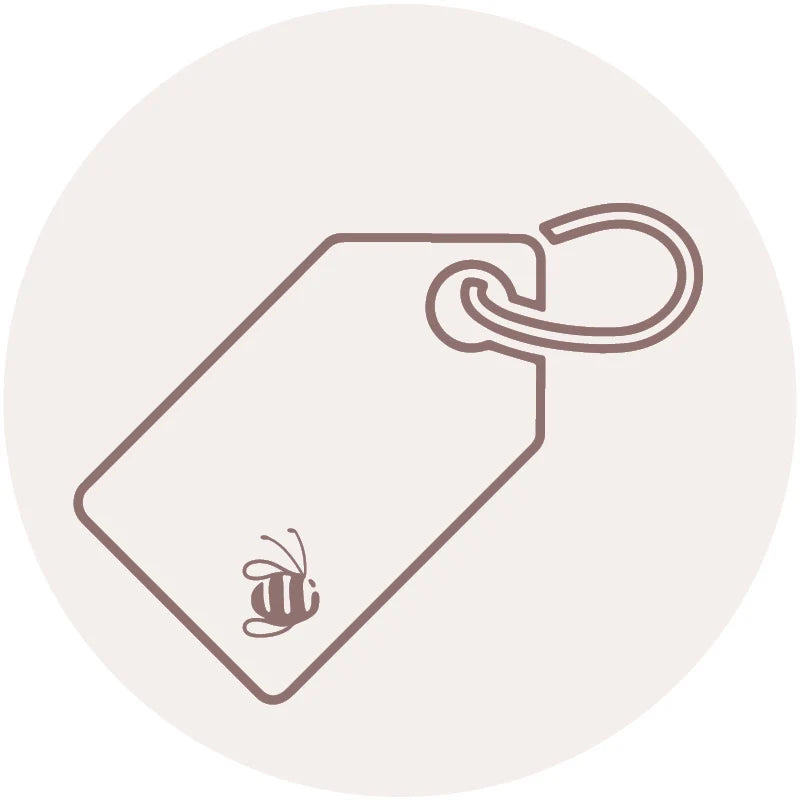Up The Duff - Kaz Cooke
Up The Duff - Kaz Cooke
SKU:BKREP6
In stock
Couldn't load pickup availability
Overview
Overview
Australia’s top-selling, most respected pregnancy book – now fully revised and updated.
Kaz Cooke’s best-selling Up the Duff is firmly established as the most loved and trusted book for Australian and New Zealand women on pregnancy.
Australia’s most trusted advisor on women’s health delivers the lowdown on pregnancy, birth and how to best prepare for life with a baby.
There’s no bossy-boots advice – just lots of cartoons and the soundest, sanest, wittiest advice you’ll ever get.
Comprehensive Pregnancy Guide- Week-by-week updates and humorous insights from Hermoine the (even more) Modern Girl
Preparation for Pregnancy - Info on conception, birth, and the latest in IVF.
Daily Pregnancy Life - Addressing daily challenges like eating, sleeping, weeing and working.
Body Changes and Challenges - Surviving nausea, stretch marks, and other ‘side effects’ that mess with your pregnancy ‘glow’.
Prenatal Testing - Understanding the very latest tests, what they’re for, and when they’ll be poking and prodding you.
Foetal Growth and Development - Monitoring healthy foetal growth and development.
Childbirth Choices - Weighing the pros and cons of ‘natural childbirth’ vs. medical intervention.
Baby Essentials and Postpartum - Covering everything from baby care, safety, and breastfeeding to how to be rude to complete strangers.
This edition has been meticulously revised and updated to provide the latest insights and advice for today’s readers. It includes cutting-edge information on prenatal testing, sustaining a healthy pregnancy, due dates, and more.
Offering valuable insights for diverse readers, including same-sex couples, individuals from various backgrounds, and working parents, it also covers contemporary trends like baby showers and gender-reveal parties.
What’s more, you’ll find a treasure trove of invaluable resources, including the best services, websites, and books covering everything pregnancy, ensuring you receive guidance from trusted sources rather than relying on well-meaning but potentially misinformed partners and busybodies.
Up the Duff has all you need to know on pregnancy and childbirth – the scary parts, the funny parts, the joyful parts – and your private parts.
What's Included
What's Included
Delivery and Returns
Delivery and Returns
- Delivery: Free within NZ on orders over $100 (excluding bulky items) or $8 standard shipping
- Returns: Accepted within 14 days of receipt with proof of purchase
- Some items are excluded from returns including sale items, hardware, car seats, prams, monitors and personal items - please click here for the full list.
Share this product
Recently Viewed Products
Related Blogs
Baby Comforters: What Are They, and How To Introduce Them
There’s something very special about watching your baby snuggle into their favourite little blanket or soft toy. For many little ones, a comforter (or blankie) becomes more than just a bedtime accessory - it’s a trusted friend that brings a sense of calm and reassurance through every new stage of growing up.
Learn moreNewborns & Sleep: What to Expect and Survival Tips
Bringing a new baby home is one of life’s most beautiful - and exhausting - adventures. In this blog, Family Sleep & Wellness Coach, Lauren Moran from Little Dreamers, shares her expert advice on newborn sleep in the fourth trimester.
Learn moreYour Wishlist, Made Easy
Creating a gift registry takes the guesswork out of gifting for you and your loved ones. While the journey of pregnancy can come with plenty of challenges, ticking off your shopping list doesn't need to be one of them.
Learn moreNavigating Emotions During Pregnancy and Postpartum: You’re Not Alone
Pregnancy and the postpartum period are times of incredible change, physically, emotionally, and mentally. You’ve entered a brand-new chapter in your life, one filled with love, learning, and sometimes, a little chaos. Your body is adjusting, your hormones are shifting, your routine is changing, and now there’s a tiny person who depends entirely on you. With such big changes, it’s completely natural to feel overwhelmed at times. These experiences can take a toll on your mental health, no matter how “small” the changes may seem. But one thing is certain, you’re not the first, and you’re not alone. Mood Swings Mood swings are incredibly common during pregnancy, postpartum, and even during menstruation. They happen when emotions change quickly or feel more intense than usual. While hormones play a big part in this, mood swings can also stem from things like lack of sleep, changes in routine, or neglecting your own needs.It’s important to care for yourself through these transitions so they feel a little smoother. Ways to Support Yourself During Mood Swings Take a walk to clear your mind. Fresh air and gentle movement can work wonders. If your baby has arrived, bring them along so you can both enjoy the change of scenery. Seek support from loved ones. Whether you need someone to talk to, help with the baby, or just company over a cup of tea, reaching out makes a huge difference. Connection is one of the strongest protectors of mental health. Create a little “you” space. It could be a cozy corner, a seat by a window, or a sunny spot outside. A quiet place to pause, breathe, and gather your thoughts can bring you back to centre. Keep up with small acts of self-care. Taking a shower can feel like a luxury with a newborn, but it truly helps. Products like the Nuna Leaf Grow can be a lifesaver, let your baby gently sway while you take a few minutes to refresh. Do your skincare routine, put on a face mask, or spend 10 minutes doing a hobby you love. Even short moments of care help your mind reset. Remember, no matter what you are feeling, your emotions are valid. If your moods are starting to affect your daily life, please reach out to your doctor, midwife, or a mental health professional. Your wellbeing matters deeply, both for you and for your new little family. Understanding Anxiety Anxiety has been part of human life since our earliest ancestors. In prehistoric times, it was a survival mechanism helping people stay alert to dangers like predators or the risk of being left out of their group. This “fight, flight, or freeze” response kept them safe.Today, we don’t face the same physical threats, but our brains still use the same alarm system. Instead of warning us about predators, anxiety now shows up in moments like worrying about parenting, work, or social situations, times when it may feel overwhelming or out of place. Feeling anxious during pregnancy is completely normal. The “what ifs” and the doubts about being a good parent can feel heavy and persistent. Many people experience this, but it’s still something that’s often under-recognised. There’s an important difference between feeling anxious and living with anxiety. Feeling anxious is a temporary and natural response; anxiety, on the other hand, is ongoing and can impact your daily life and wellbeing. Common Symptoms of Anxiety Excessive worry about your baby’s health, birth, or your ability to parent Physical symptoms like sweating, shortness of breath, or difficulty sleeping Intrusive or distressing thoughts about your baby Irritability, restlessness, or difficulty focusing These symptoms can affect sleep, appetite, and how you function day to day, sometimes even making it harder to bond with your baby. If your anxiety feels overwhelming, please reach out for support. You do not need to face this alone. Support in Aotearoa New Zealand Anxiety NZ: Call 0800 ANXIETY (0800 269 4389) or visit anxiety.org.nz PADA - Perinatal Anxiety & Depression Aotearoa: pada.nz for help specific to pregnancy, birth, and early parenting Need to Talk? Text or call 1737 anytime for free, confidential counselling; 1737.org.nz For Māori whānau, resources like Te Whare Tapa Whā and Whānau Ora offer holistic, culturally grounded support; visit manamokopuna.org.nz. For Pasifika families, PADA offers programmes such as Tama'ita'i Toa, and you can also explore stories like Sela’s Project: A Mother’s Cry at mentalhealth.org.nz. Reaching out is a sign of strength, not weakness. Help is available, and you deserve support. Postpartum Depression (PPD) After giving birth, some people experience postpartum depression (PPD) or anxiety, sometimes weeks, months, or even years after their baby arrives. It’s something that has existed throughout human history, yet it’s still under-researched and often misunderstood.If you’re experiencing symptoms of depression or anxiety, please know this is not your fault. These feelings do not define your worth or your ability to be a good parent. Common Symptoms of PPD Persistent low or flat mood Frequent irritability or loss of interest in usual activities Changes in appetite or sleep Constant fatigue Trouble concentrating or making decisions Some parents may also experience distressing intrusive thoughts about their baby. These can feel terrifying or shameful, but having these thoughts does not mean you want to harm your child. They are a symptom of your mental health, not a reflection of who you are. If you’re struggling with these thoughts or any of the symptoms above, please reach out for help. You are not alone, and there is care available to support both you and your baby. In Aotearoa, you can find support and information through Healthify NZ’s Postnatal Depression. Finding Your Balance Again While pregnancy and postpartum can bring moments of uncertainty and emotional ups and downs, they also bring incredible growth, connection, and love. You are learning new things about yourself every single day, how strong you are, how deeply you can care, and how resilient the human heart can be. Remember, there will be good days and harder ones, but none of them define you as a parent. The difficult moments will pass, and with time, support, and self-compassion, things will start to feel lighter again. Be gentle with yourself. You are doing one of the most important and beautiful things in the world: nurturing life, both your baby’s and your own. Take each day as it comes, celebrate the little victories, and remind yourself often: you’ve got this.
Learn more

